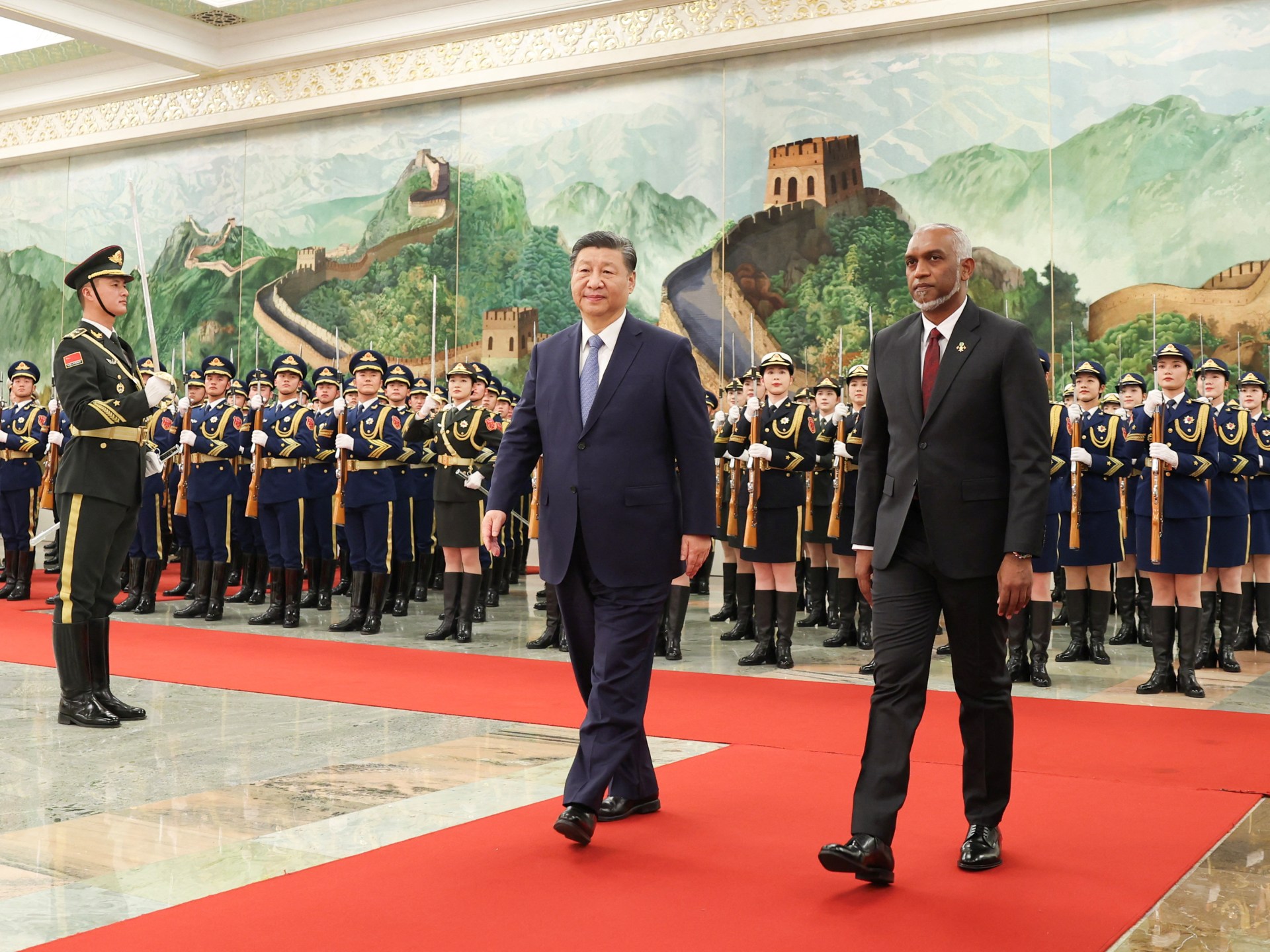Maldives’ new president makes first state visit to Beijing as China and India vie for influence in Indian Ocean nation.
China and the Maldives have upgraded their relationship during newly elected President Mohamed Muizzu’s first state visit to Beijing, following a campaign in which he cast China’s regional rival India as a threat to its sovereignty.
The Maldives signed several new agreements with China – its largest external creditor – on Wednesday, including ones on climate, agriculture and infrastructure, Muizzu’s office said on Thursday. No details about the value of the deals were shared by either side.
Chinese President Xi Jinping, speaking at the Great Hall of the People, called Muizzu “an old friend” as the Asian giant set the stage for further investment in the Indian Ocean archipelago by agreeing to a “comprehensive strategic cooperative partnership”.
In talks with Xi, Muizzu “expressed gratitude for China’s significant role in the Maldives’ economic success … and infrastructure development,” read a statement from his office.
“Under the new circumstances, China-Maldives relations face a historic opportunity to build on past achievements and forge ahead,” Xi told Muizzu, according to China’s state news agency Xinhua.
The Chinese president said he “respects and supports the Maldives in exploring a development path suited to its national conditions”, it said.
But the World Bank, in a report in October, warned further cosying up to China could spell trouble in the Maldives, since the $1.37bn it already owes Beijing represents about 20 percent of its public debt.
China is the Maldives’ biggest bilateral creditor, ahead of Saudi Arabia and India, to which it owes $124m and $123m, respectively.
India’s relations with the Maldives have been strained, especially since Muizzu, who campaigned on an “India Out” platform, took office.
He promised to remove a unit of Indian security personnel, deployed to operate three aircraft gifted to the Maldives to patrol its vast maritime territory.
Sri Lanka, another neighbour of India, has also been gravitating towards China.
India and China’s relations soured in 2020 after clashes between soldiers in the western Himalayas resulted in the deaths of 20 Indian soldiers and four Chinese troops.
Last month, Muizzu said he had secured the withdrawal of Indian soldiers, but did not give a timeframe. He has denied seeking to redraw the regional balance by bringing in Chinese forces instead.
Tensions between the two nations continued to flare last week, following disparaging social media posts made by three of Muizzu’s junior ministers, who reportedly called Indian Prime Minister Narendra Modi a “clown”, ” a terrorist” and “puppet of Israel”, in response to a video of him promoting tourism in Lakshadweep, an Indian territory in the Arabian Sea. The posts on X have since been deleted.
In the Maldives, some viewed Modi’s visit as trying to draw tourists away from the globally popular destination, whose 1,192 islands in the Indian Ocean are dotted with luxury resorts.

